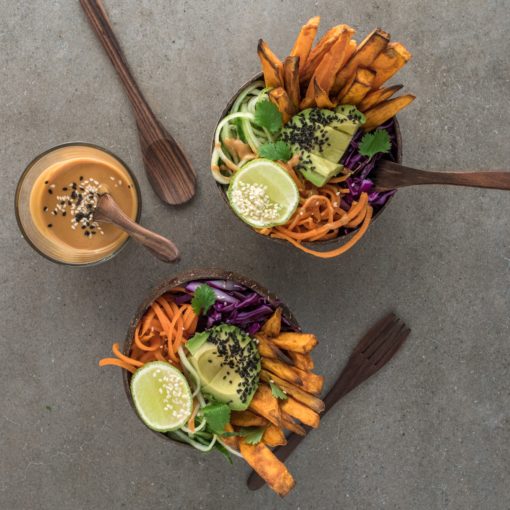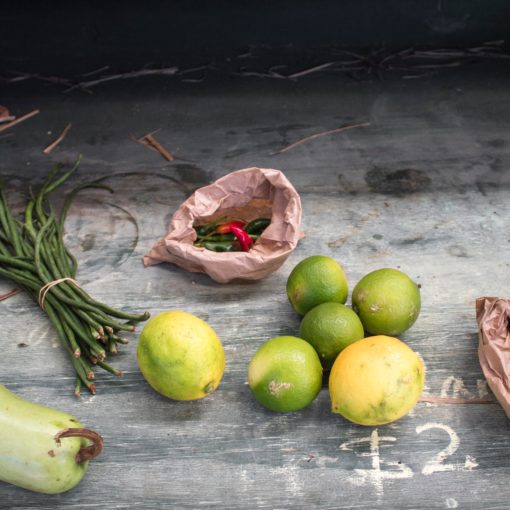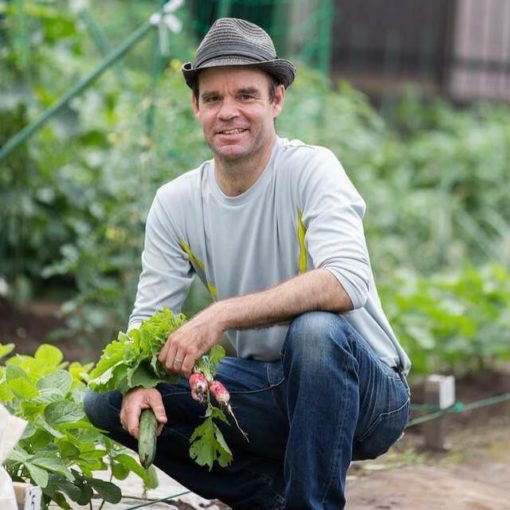Noriko Shindo is Japanese but has been brought up abroad before moving back to Japan. After transitioning to a plant-based diet and seeing the positive influence she had on some of her friends, she decided to start Veggino. Veggino is a bi-lingual non-for-profit website and group that aims to spread a plant-based lifestyle in Japan.
Noriko took part in our second edition of Conversations with Green Changemakers in Japan and you can find below, the player to listen to the full interview.
This podcast is also available to listen on Apple Podcast, Deezer and Spotify.
If you want to know more about plant-based diet in Japan and be inspired to try out some recipes, check out Veggino website. You can also find them on Facebook and Instagram.
Feel free to reach out to Noriko if you have any questions: noriko@veggino.jp.

How did you become aware of the climate change issue?
I think I’ve always known our consumption choices have some form of impact to the Earth from growing up in the U.K. There, I was exposed to such concepts through various school activities and event days where proceeds from a school event (such as a flea sale) would go to charities and organizations that were helping environmental or social issues in the world.
However, it was not until I transitioned to a fully plant-based lifestyle 3 years ago that I looked into the subject, only to realize the devastating situation of our planet today.
How did you start your ecological transition?
It was a consequence of changing my lifestyle to a plant-based one starting primarily with my diet. After 2 weeks of trying a plant-based diet and feeling good about it, I decided to educate myself on the implications of staying plant-based vs incorporating animal products back in my life, only to realize that there was no good reason for incorporating back the animal products I once relied on or enjoyed.
What is a plant-based diet?
A plant-based diet is one that solely consumes plant-based products and excludes any animal byproducts from the diet. I actually extend that further to a plant-based lifestyle, eliminating animal-based products from other areas of my life such as clothes, make-up, entertainment etc.
The term “plant-based” often gets confused with “vegan” or “veganism”. While you can be both a vegan and a plant-based person, a plant-based person is not necessarily vegan, and I like to make that distinction.
The word “vegan” or Veganism as a movement came up in the 1940’s in U.K primarily as an act to boycott purchases that harmed or exploited animals. Today, many vegans have their reasons for becoming/staying vegan but as it is primarily a social act, you cannot be “partially vegan”.
On the contrary, while I believe that a 100% plant-based lifestyle is the best way to go for various reasons, I want to encourage more people to be “partially plant-based” rather than to encourage everyone to go all the way – a plant-based diet with a higher percentage of plant-only meals is also the single most effective way – yes, more than cutting flights, and using more public transportation – to stop and reverse climate change (backed also by science; see the study by Oxford University in 2018); so all the more reasons I think more people should try a plant-based diet to the extent they feel comfortable with.
How did you make the transition to a plant-based diet?
The bottom line was that I was curious as to how my body would feel on a 100% plant-based diet. So I tried it for 2 weeks and never looked back. I would love to say I started for the planet (or maybe for the animals), but for me it was curiosity that spurred the change.
I also never fully enjoyed eating meat (I had asked my mother many times when I was young whether I could become vegetarian), so it all came together quite nicely.
What is Veggino?
Veggino is a non-for-profit group that aims to help more people in Japan understand and try the plant-based lifestyle. We primarily focus on sharing information based on facts, as well as recipes that are easy to make with regular ingredients you can find at a Japanese supermarket. We also do events in the form of meet-ups or lunch & learns to encourage more dialogue about the subject.
We are also happy to provide consultation to individuals who are considering a plant-based life.
How and why did you start Veggino?
Veggino was inspired by the fact that my mother and friend Jad (also a co-founder now) tried and stayed plant-based after hearing and seeing the way I live. Curiosity spurred me, and in turn curiosity spurred them just by my act of sharing the food, the fun I was having, and the benefits of choosing to live this way. I realized if I could do the same influencing through the internet, and make it easy for those curious folks who wanted the right friend to tell them the right (reliable) information, we would see more people trying a plant-based life.
Check out Noriko top tips to move to a plant-based diet in Japan.



